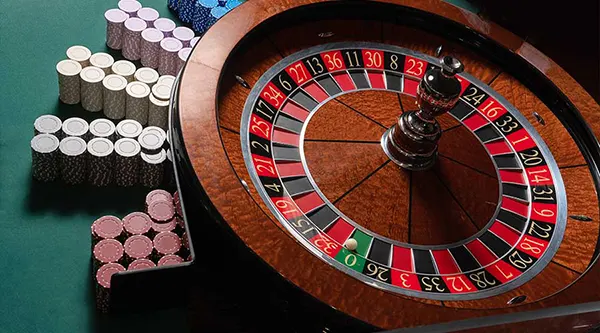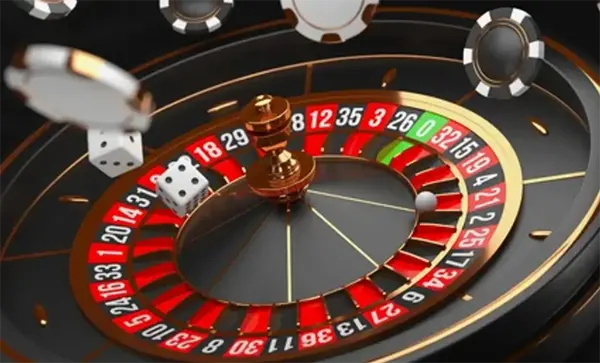The Psychology of Roulette: How to Avoid Gambling Addiction

Roulette is one of the most iconic and thrilling games in both land-based and online casinos. While it offers an intense combination of chance and strategy, it also presents a psychological challenge that can lead to compulsive behaviours. Understanding the underlying psychological triggers and learning to manage one’s behaviour is essential to enjoying the game responsibly and avoiding the path to gambling addiction.
The Allure of Roulette and Its Psychological Impact
The design of roulette is deeply tied to reward mechanisms in the human brain. The spinning wheel, flashing lights, and instant outcomes trigger dopamine release, which reinforces the desire to keep playing. This neurological response is similar to what occurs with substance-related addictions, making roulette particularly risky for individuals prone to compulsive behaviour.
Near misses play a major role in creating a false sense of progress. For instance, if a player bets on black and the ball lands on a red slot adjacent to a black one, they may feel “close” to winning. This perception encourages further play, despite it being statistically meaningless. Such illusions can distort rational decision-making and fuel irrational betting patterns.
Moreover, the randomness of roulette gives an illusion of control. Players may believe that past outcomes can influence future spins—a phenomenon known as the gambler’s fallacy. This belief often leads to increased bets based on patterns that do not exist, further entrenching risky gambling behaviour.
Emotional Triggers and Escapism
For many players, roulette serves as an emotional outlet or a means of escapism. The game provides a temporary distraction from personal stress, financial difficulties, or emotional distress. Unfortunately, this coping mechanism can create a cycle where players chase the ‘high’ of wins to suppress negative emotions, deepening their dependency.
Losses in roulette can provoke strong emotional reactions, including anger, guilt, and frustration. Players often respond with ‘tilt’—a state of impaired judgement where they make irrational bets in an attempt to recover losses. This not only leads to deeper financial trouble but also exacerbates emotional instability.
Chasing losses is one of the most dangerous patterns. A single win after a series of losses might validate risky behaviour, convincing the player that persistence pays off. In reality, such moments are rare and reinforce unsustainable habits. Recognising these emotional cycles is critical to breaking free from the grip of addiction.
Strategies to Maintain Control While Playing
Establishing strict time and spending limits before starting a roulette session is a crucial preventive measure. Responsible players treat their budget as entertainment expenditure, never exceeding what they can afford to lose. Setting boundaries helps maintain emotional distance from the game and prevents financial overreach.
Using external tools and features offered by most reputable online casinos can support self-control. Deposit limits, time alerts, and self-exclusion programs are designed to assist players in staying within safe boundaries. Actively engaging with these tools shows a commitment to healthy gambling habits.
Regularly taking breaks and evaluating emotional states can significantly reduce the risk of addiction. If a player begins to feel anxious, obsessive, or overly invested in outcomes, it is advisable to step away. Roulette should always be a form of leisure—not a coping mechanism or a source of pressure.
Building Healthy Habits and Awareness
Education is one of the strongest defences against addiction. Understanding how roulette works, including its house edge and randomness, empowers players to approach the game with realistic expectations. Knowledge reduces the likelihood of falling into cognitive traps such as the illusion of control or belief in hot streaks.
Talking openly about gambling behaviour with trusted individuals can offer perspective and support. Whether it’s friends, family, or professionals, discussing concerns creates a safety net and can provide motivation to stick to self-imposed limits. Isolation, on the other hand, often correlates with worsening addictive patterns.
Joining responsible gambling communities or forums can foster a sense of accountability. Sharing experiences and reading about others’ journeys helps in recognising warning signs early. Being part of a group encourages mindfulness and helps develop long-term, sustainable habits.

Professional Help and Recovery Resources
If gambling begins to interfere with daily life, professional intervention becomes necessary. Therapists specialising in behavioural addiction can guide individuals through evidence-based treatments like cognitive-behavioural therapy (CBT). These methods address the thought patterns and emotional triggers that sustain addiction.
Support groups such as Gamblers Anonymous offer structured recovery programs and peer support. Being in a group of people who have faced similar challenges helps reduce shame and builds a sense of hope. Meetings, whether in-person or online, provide a confidential space to share, learn, and heal.
Many countries, including the UK, provide helplines and online support services for those struggling with gambling addiction. Resources like BeGambleAware and NHS Gambling Services are accessible, confidential, and free. Seeking help is a sign of strength—not failure—and is the first step towards reclaiming balance and well-being.
Preventing Relapse and Sustaining Recovery
Recovery from gambling addiction is an ongoing process. Relapse prevention strategies include identifying personal triggers, building alternative routines, and maintaining regular therapy or support group attendance. Consistent self-reflection and emotional check-ins help prevent backsliding into unhealthy behaviours.
Celebrating small victories, like reaching a gambling-free milestone or successfully resisting an urge to bet, can reinforce motivation. Reward systems that do not involve gambling, such as treating oneself to a non-gambling-related activity, build positive reinforcement loops.
Ultimately, rebuilding a balanced lifestyle with fulfilling hobbies, social connections, and career goals plays a central role in sustaining recovery. The goal is not just to stop gambling, but to replace it with meaning and purpose that contribute to overall mental health and stability.
